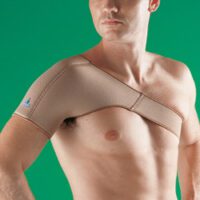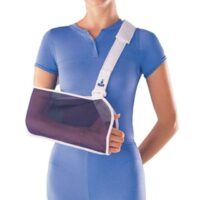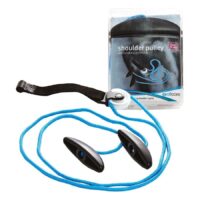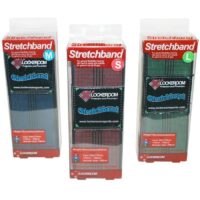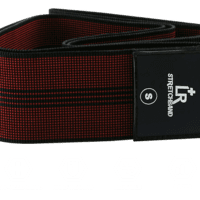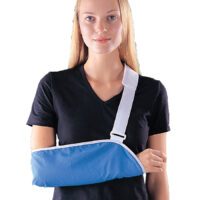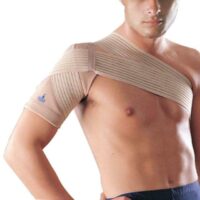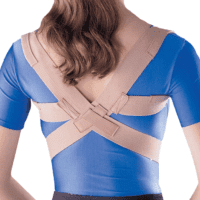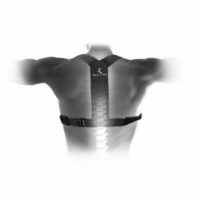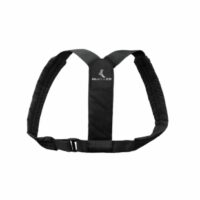Rotator Cuff Calcific Tendinopathy
Article by John Miller

Managing a Rotator Cuff Calcific Tendinopathy
What is Rotator Cuff Calcific Tendinopathy?
Rotator Cuff Calcific Tendinopathy, often termed calcific tendonitis, involves calcium deposit formation in the rotator cuff tendons. These deposits, typically 1-2 centimetres, frequently impact individuals aged 30-40 and those with diabetes. Pain from these deposits can resolve independently within a few weeks.
What are the Underlying Causes?
The exact cause remains a mystery, but delayed tendon healing is a key factor. This process involves fibroblasts, cells vital for collagen production. As tendons age, fibroblasts decrease, and osteoblasts, which lead to bone formation, replace them. This leads to calcification within the tendon.
Stages of Progression
Rotator Cuff Calcific Tendinopathy generally follows a predictable pattern, often resolving without surgery:
- Pre-Calcification Stage: Changes occur in tissues, setting the stage for calcium deposits.
- Calcific Stage: Calcium is excreted, forming deposits. A painless resting phase follows, then a painful resorptive phase where the deposit becomes like toothpaste.
- Post-Calcific Stage: The deposit gradually disappears, and normal tendon tissue replaces it.
Link with Shoulder Impingement Syndrome
This condition may be found during assessments for shoulder impingement syndrome, where the tendon or bursa gets pinched under the shoulder blade.
Effective Treatment Strategies
Treatment involves a comprehensive rehabilitation program, including injury protection, pain relief, and regaining full range of motion. Strengthening the rotator cuff and restoring shoulder function are crucial. Progress through treatment varies, and it’s important not to rush to avoid re-injury.

Benefits of Physiotherapy for Rotator Cuff Calcific Tendinopathy
Physiotherapy plays a crucial role in the treatment and management of Rotator Cuff Calcific Tendinopathy. Its benefits are multifaceted, addressing both pain relief and functional rehabilitation.
1. Pain Management: Physiotherapy techniques, including manual therapy, ultrasound, and specific exercises, help alleviate pain. These methods enhance blood flow to the affected area, promoting healing and reducing discomfort.
2. Improved Mobility: Stiffness is a common issue with rotator cuff problems. Physiotherapy exercises are designed to increase the range of motion, ensuring that the shoulder can move more freely and with less pain.
3. Strengthening the Rotator Cuff: Physiotherapy focuses on strengthening exercises. Strengthening the muscles around the shoulder joint provides better support to the rotator cuff, reducing the risk of future injuries.
4. Postural Correction: Poor posture can exacerbate shoulder pain. Physiotherapists guide patients in correcting their posture to reduce strain on the shoulder.
5. Functional Rehabilitation: Physiotherapy aids in restoring the shoulder’s function, essential for daily activities and specific job-related tasks.
6. Preventing Recurrence: By addressing the root causes and providing education on shoulder mechanics, physiotherapy helps prevent future occurrences.
7. Personalised Care: Each treatment plan is tailored to the individual’s specific needs, ensuring more effective recovery.
In conclusion, physiotherapy offers a comprehensive approach to managing Rotator Cuff Calcific Tendinopathy, not only treating the symptoms but also promoting long-term shoulder health. Patients are encouraged to actively participate in their recovery, guided by expert physiotherapists, to achieve the best outcomes.
Conclusion: Taking Charge of Your Recovery
If you’re struggling with shoulder pain, understanding Rotator Cuff Calcific Tendinopathy is the first step. Engaging with a physiotherapist for a personalised plan is crucial. Remember, recovery varies, and patience is key.
What to Do Next?
Experiencing shoulder pain? Consult a physiotherapist for a tailored approach to your condition. They’ll guide you through a rehabilitation program suited to your needs, ensuring you’re on the path to recovery.
Related Articles
- Rotator Cuff Tear: This article explores the causes, symptoms, and treatment options for rotator cuff tears.
- Rotator Cuff Exercises: Focuses on exercises to strengthen the rotator cuff, helping prevent injuries such as tendinopathies and shoulder impingement syndrome.
- Rotator Cuff Injury: Discusses the range of rotator cuff injuries, from mild conditions like tendinopathy to severe tears requiring surgical intervention.
- How Can You Make Your Rotator Cuff Heal Faster: Offers tips on promoting faster healing for rotator cuff injuries.
- Rotator Cuff Tendinopathy: Addresses the condition of shoulder tendinopathy, involving various injuries to the rotator cuff tendons.
- Shoulder Impingement: Provides information on diagnosing and treating shoulder impingement, a condition related to rotator cuff issues.
Rochedale - Call 38410277
Book Online: RochedaleSalisbury - Call 32751044
Book Online: SalisburySandgate - Call 32691122
Book Online: Sandgate 

Article by Matthew Hewitt
Common Causes of Shoulder Pain: Anatomy and Treatment
The shoulder is an essential joint, offering unmatched mobility that supports everyday activities and athletic performance. However, its complex structure makes it prone to injuries and discomfort. Shoulder pain can affect anyone and may range from mild irritation to debilitating pain that hinders daily tasks.
Anatomy of the Shoulder
The shoulder joint combines bones, muscles, tendons, and ligaments to achieve its remarkable range of motion. The humerus (upper arm bone) fits into the scapula’s (shoulder blade) shallow socket, supported by the rotator cuff, labrum, and bursa. This intricate interplay allows fluid movement but increases the risk of injury.
Common Causes of Shoulder Pain
1. Rotator Cuff Issues
The rotator cuff consists of four small muscles and their tendons, which stabilise the shoulder. Overuse, age-related wear, or acute injuries can lead to tears, tendinopathy, or impingement. These conditions often cause pain, weakness, and restricted mobility. Read more: Rotator Cuff Injuries
2. Shoulder Bursitis
The bursa, a fluid-filled sac, cushions the tendons and reduces friction. Inflammation from repetitive motion or poor biomechanics can result in pain, swelling, and limited range of motion. Read more: Shoulder Bursitis
3. Labral Tears
The labrum is a soft tissue structure that helps stabilise the shoulder. Injuries like dislocations or repetitive stress can damage the labrum, leading to instability and recurring shoulder issues. Read more: Labrum Injuries
4. Fractures or Dislocations
Fractures to the humerus or scapula, often due to falls or trauma, are common in older adults. Dislocations occur when the joint is forced out of alignment, causing intense pain and requiring immediate medical attention. Read more: Shoulder Fractures | Shoulder Dislocation
Why Does Shoulder Pain Occur?
Shoulder pain is a widespread issue that can significantly affect your daily activities. Whether it's due to an injury, overuse, or an underlying condition, identifying the root cause is crucial for effective treatment and recovery. This FAQ page aims to address the most common causes of shoulder pain and guide you towards the next steps for managing your symptoms.
Shoulder pain can arise from various conditions and injuries, each affecting different parts of the shoulder joint and surrounding tissues. Understanding the cause of your shoulder pain is essential to finding the right treatment. The common causes include:
Rotator Cuff Issues
The rotator cuff stabilises your shoulder, but it’s prone to injury, especially with repetitive movements.
- Rotator Cuff Injury: Typically results from repetitive overhead activities, causing pain and weakness. Learn more about rotator cuff injuries.
- Rotator Cuff Tendinopathy: Involves inflammation or damage to the tendons, leading to reduced mobility. Explore rotator cuff tendinopathy.
- Rotator Cuff Tear: Often due to injury or age-related wear, resulting in severe pain and limited function. Understand rotator cuff tears.
Shoulder Impingement and Related Conditions
Shoulder impingement occurs when tendons are pinched, leading to pain during arm movements.
- Shoulder Impingement Syndrome: A condition where tendons are compressed, causing pain and limited mobility.
- Shoulder Bursitis: Inflammation of the bursa in the shoulder, leading to pain.
- Swimmer’s Shoulder: Common in swimmers, this overuse injury causes impingement symptoms.


How Does Shoulder Pain Develop?
Shoulder pain can develop gradually or suddenly, depending on the cause. Chronic conditions often lead to stiffness and limited movement, while acute injuries might cause immediate pain. Common conditions include:
Frozen Shoulder (Adhesive Capsulitis)
A condition causing stiffness and pain, often developing slowly.
- Adhesive Capsulitis / Frozen Shoulder: Gradual onset of stiffness and pain, often without a specific cause.
- Shoulder Arthritis: Degenerative joint disease leading to pain and stiffness.
Shoulder Instability
Instability in the shoulder can result in recurrent dislocations or subluxations, causing ongoing pain.
- Shoulder Dislocation: Occurs when the joint is forced out of position.
- Functional Shoulder Instability: Chronic instability leading to recurrent issues.
What Should You Do Next?
If you’re experiencing shoulder pain, the best course of action is to seek advice from a physiotherapist or doctor. They can provide a thorough assessment and develop a personalised treatment plan. This might include exercises, manual therapy, or even surgery if necessary.
Post-Operative Shoulder Rehabilitation
Recovery after shoulder surgery is crucial to regain full function.
- Subacromial Decompression: A procedure to relieve impingement symptoms.
- Rotator Cuff Repair: Surgical repair to address torn rotator cuff muscles.
- Post-Operative Shoulder Rehabilitation: Tailored exercises to aid recovery after surgery.
Read more: Post-op Shoulder Rehab
Risk Factors
- Age: Wear and tear increases with age.
- Repetitive Activities: Sports like swimming or overhead movements heighten the risk.
- Posture: Poor posture strains shoulder muscles and tendons.
Diagnosis and Tests
Your physiotherapist or doctor shoulder conduct a thorough assessment, which may include:
- Physical examination including a spectrum of specific and general shoulder tests.
- Imaging tests like X-rays, MRIs, or ultrasounds.
- Strength, instability and range of motion tests.
- Technique or movement pattern evaluation, plus more.
Treatment Options
- Physiotherapy: Tailored exercises to strengthen the rotator cuff and stabilise the shoulder.
- Medications: Anti-inflammatory medications or injections to reduce pain and swelling. eg bursitis
- Surgery: Reserved for severe injuries like full thickness rotator cuff tears or fractures.
Prevention Strategies
- Regular strengthening and flexibility exercises.
- Maintaining good shoulder and scapulothoracic posture.
- Avoiding high-risk repetitive, high-load or overhead motions.
Long-Term Management
Physiotherapy, combined with lifestyle adjustments, plays a key role in managing chronic shoulder conditions. Regular exercise and avoiding reinjury are critical for long-term health.
What to Do Next?
If shoulder pain disrupts your life, consult a physiotherapist or doctor for a comprehensive assessment. Early intervention ensures the best outcomes.
Rochedale - Call 38410277
Book Online: RochedaleSalisbury - Call 32751044
Book Online: SalisburySandgate - Call 32691122
Book Online: SandgateShoulder Pain FAQS
- Why does my shoulder hurt when I lift my arm?
Lifting your arm can pinch tendons or muscles, often due to shoulder impingement or rotator cuff issues. - How can I treat shoulder pain at home?
Rest, ice, and gentle stretching can help, but professional assessment is recommended for persistent pain. - What are the signs of a rotator cuff tear?
A rotator cuff tear typically causes pain, weakness, and difficulty lifting your arm above your head. - Where can I get treatment for shoulder pain?
Consult a physiotherapist for a tailored treatment plan that may include exercises, manual therapy, or surgery. - When should I see a doctor for shoulder pain?
See a doctor if you experience severe pain, sudden inability to move your shoulder, or if the pain persists despite rest. - What is the most common cause of shoulder pain?
Rotator cuff injuries are the most common cause, often resulting from repetitive overhead activities.
Related Articles
- Rotator Cuff Injury: Causes and Treatment
Explore the common causes and treatment options for rotator cuff injuries. - Shoulder Impingement Syndrome: Symptoms and Recovery
Learn about the symptoms and how to recover from shoulder impingement. - Frozen Shoulder: What You Need to Know
Understand the signs and treatments for frozen shoulder. - Shoulder Arthritis: Managing Pain and Stiffness
Discover ways to manage the pain and stiffness associated with shoulder arthritis. - Shoulder Dislocation: Treatment and Prevention
Learn how to treat and prevent shoulder dislocations. - Post-Operative Shoulder Rehabilitation
Find out what to expect during post-operative rehabilitation for shoulder surgery. - AC Joint Injury: Causes and Treatment
Understand the causes and treatment options for AC joint injuries. - Biceps Tendinopathy: Symptoms and Treatment
Learn about the symptoms and treatment of biceps tendinopathy. - Shoulder Bursitis: Causes and Treatment
Explore the causes and treatment options for shoulder bursitis. - Shoulder Pain: Causes, Treatments, and When to See a Doctor
Discusses various causes of shoulder pain and when you should consult a doctor. - Shoulder Pain: Diagnosis and Treatment
Offers an in-depth look at the diagnosis and treatment of shoulder pain. - Understanding Shoulder Pain and Its Treatments
Explains shoulder pain causes and treatment options, including when surgery is necessary.
Shoulder Pain FAQs
Your Comprehensive Guide to Understanding and Managing Shoulder Injuries
Welcome to the "Shoulder Pain FAQs" page, your go-to resource for understanding various aspects of shoulder pain, injuries, and how to manage them effectively. The shoulder is a complex joint that allows for a wide range of movements, but it is also susceptible to various injuries and conditions that can cause discomfort and limitations in daily activities.
In this comprehensive guide, we will explore the most common shoulder injuries, their causes, and how to identify and treat them. We'll also address frequently asked questions about specific shoulder conditions, providing you with valuable insights into your shoulder health.


When Should You Worry About Shoulder Pain?
Shoulder pain can be caused by numerous factors, ranging from minor strains to more severe injuries. Knowing when to seek medical attention is crucial to prevent further damage and facilitate timely recovery.
Common Shoulder Injuries
We'll swing into the most prevalent shoulder injuries, shedding light on their causes, symptoms, and appropriate treatment options.
More info: Common Shoulder Injuries
What Causes Shoulder Pain?
Understanding the root causes of shoulder pain is fundamental to addressing the issue effectively. We'll explore the various factors that can lead to shoulder discomfort and how to mitigate them.
More info: What Causes Shoulder Pain?
What is Your Scapulohumeral Rhythm?
The scapulohumeral rhythm plays a vital role in shoulder function and movement. We'll explain what it is and its significance in maintaining a healthy shoulder.
More info: What is Your Scapulohumeral Rhythm?
Rotator Cuff: An In-Depth Analysis
The rotator cuff is a critical group of muscles and tendons in the shoulder. We'll dive into its anatomy, functions, and common problems associated with it.
More info: Rotator Cuff: An In-Depth Analysis
How Can You Tell If You Have Torn Your Rotator Cuff?
Identifying a torn rotator cuff can be challenging, but we'll provide you with essential signs to look out for and when to seek professional evaluation.
More info: How Can You Tell If You Have Torn Your Rotator Cuff?
Can You Diagnose A Torn Rotator Cuff Without An MRI?
Find out about diagnostic methods for a torn rotator cuff, including whether an MRI is always necessary for accurate diagnosis.
More info: Can You Diagnose A Torn Rotator Cuff Without An MRI?
Can You Lift Your Arm With A Rotator Cuff Tear?
Discover the limitations and challenges you may face if you have a torn rotator cuff and how to manage arm movement during the healing process.
More info: Can You Lift Your Arm With A Rotator Cuff Tear?
Will Your Shoulder Blade Hurt With A Torn Rotator Cuff?
Learn about the possible relationship between a torn rotator cuff and shoulder blade pain, and what it indicates about your shoulder health.
More info: Will Your Shoulder Blade Hurt With A Torn Rotator Cuff?
Will A Cortisone Injection Help A Torn Rotator Cuff?
Cortisone injections are sometimes used for shoulder pain, but their effectiveness in treating a torn rotator cuff is a point of interest we'll explore.
More info: Will A Cortisone Injection Help A Torn Rotator Cuff?
How Can You Make Your Rotator Cuff Heal Faster?
We'll provide practical tips and strategies to aid in the healing process of a torn rotator cuff and restore shoulder function more rapidly.
More info: How Can You Make Your Rotator Cuff Heal Faster?
Shoulder Bursitis: Understanding the Condition
What is shoulder bursitis, and how does it differ from other shoulder injuries? Get insights into this inflammatory condition and how to manage it.
More info: Shoulder Bursitis: Understanding the Condition
Shoulder Impingement: Causes and Solutions
Understand the concept of the shoulder impingement zone and the factors contributing to rotator cuff impingement and bursitis.
More info: Shoulder Impingement: Causes and Solutions
Frozen Shoulder: Overcoming the Stiffness
Discover how to unfreeze a frozen shoulder and regain a full range of motion through effective therapeutic approaches.
More info: Frozen Shoulder: Overcoming the Stiffness
Shoulder Dislocation/Instability: Seeking Stability
Explore the causes of shoulder dislocation and instability, and the fastest ways to promote healing and prevent future occurrences.
More info: Shoulder Dislocation/Instability: Seeking Stability
Can You Fix Shoulder Instability?
Find out about treatment options to address shoulder instability and regain stability in the joint.
More info: Can You Fix Shoulder Instability?
AC Joint: Identifying and Managing Injuries
Learn how to recognise an injured AC joint and what steps to take for proper care and recovery.
More info: AC Joint: Identifying and Managing Injuries
Swimmers Shoulder: Causes and Remedies
If you're a swimmer or engage in repetitive overhead activities, understanding the causes of swimmer's shoulder and how to prevent it is essential.
More info: Swimmers Shoulder: Causes and Remedies
We hope this comprehensive guide will prove invaluable in your journey to understand and manage shoulder pain and injuries. However, it's essential to consult a healthcare professional for personalised advice and treatment based on your specific condition. Let's dive into the world of shoulder health together!

















